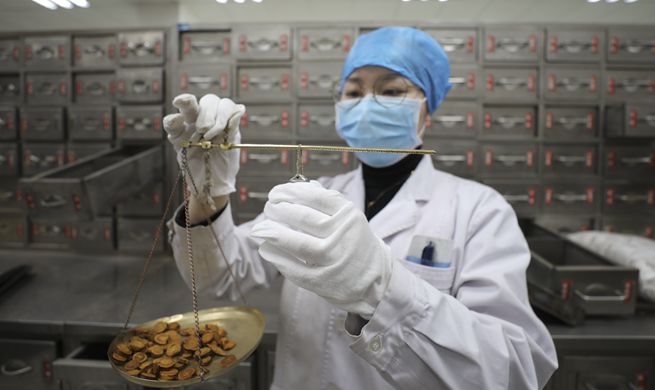LONDON, Feb. 18 (Xinhua) -- Newly-developed technology could help researchers analyze the individual behavior of millions of different cells living inside tumors, paving the way for novel personalized caner treatment, the University College London (UCL) announced Tuesday in a press statement.
Researchers at UCL Cancer Institute have developed a new mass spectrometry platform to measure communication signals in millions of single cells from bowel cancer mini-tumors, it said.
This technological breakthrough means that, for the first time, scientists can now study how cancer cells interact with any cell type using mini-tumor models, according to the study, which has been published in the journal Nature Methods.
"This new technique revealed that mutations in cancer cells mimic the growth signals normally provided by cells in the healthy tissue microenvironment," said the study's corresponding author Dr Chris Tape at UCL Cancer Institute.
"In healthy tissues, signals from the environment are tightly controlled so the tissue doesn't grow too fast. Unfortunately in cancer, mutations that mimic microenvironment signals are constantly switched on -- allowing the cancer to grow unchecked."
The new technology developed at UCL enabled scientists to observe this phenomenon in minute detail.
"By understanding how mini-tumors function at the single-cell level, this new technology will enable researchers to identify new ways to treat an individual's cancer," said Dr Tape.
The team expects that in the future an individual patient will have mini-tumors grown as "living biopsies" alongside their clinical treatment, and researchers will be able to test drugs on the mini-tumors and use that to inform how the patient's individual tumor should be treated.













